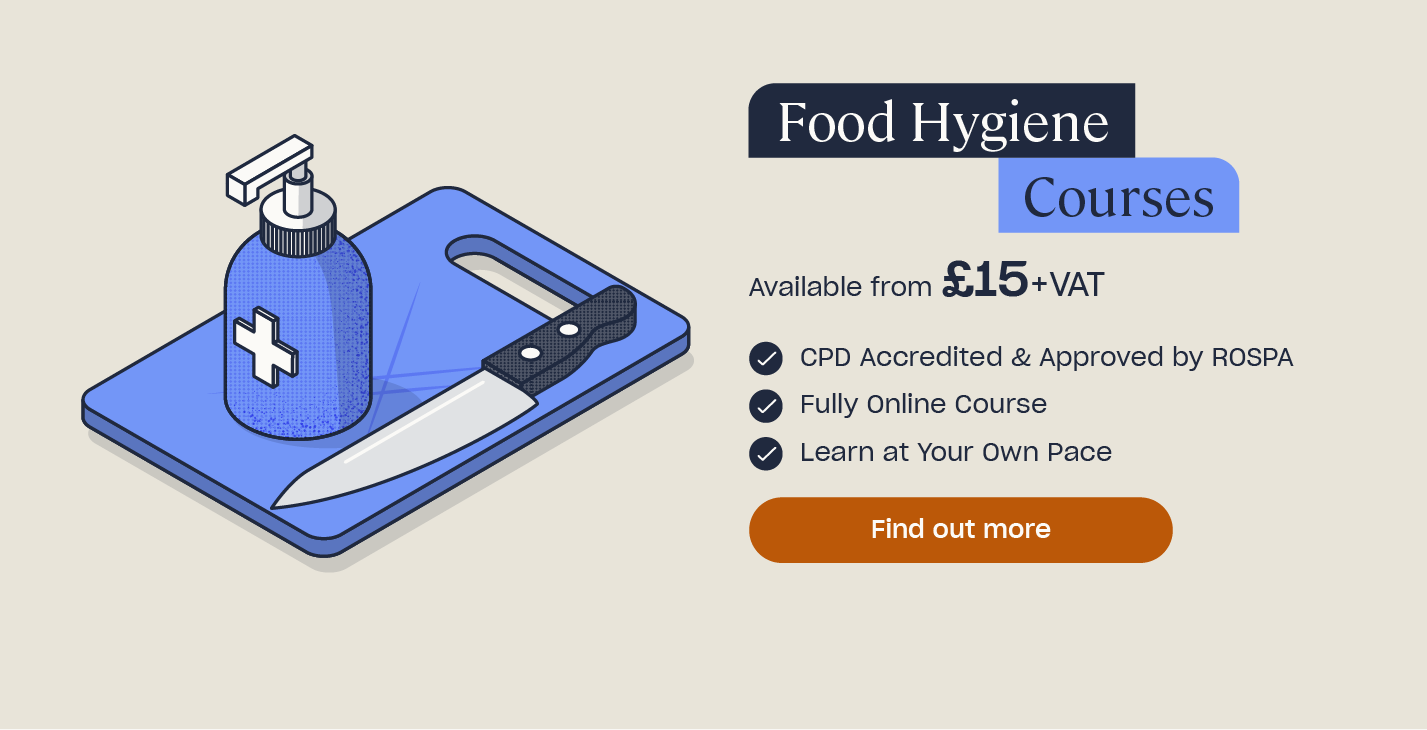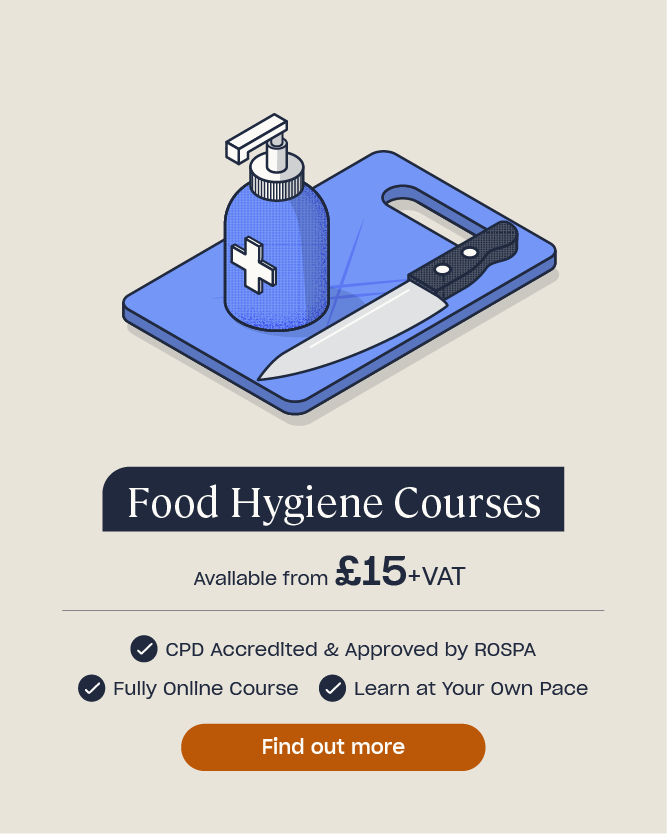What is Caffeine and is it Dangerous?
Most of us consume caffeine every day, whether intentionally or unknowingly. Perhaps you start your day with a double espresso, have a tea break mid-morning, pick up an energy drink at lunchtime and then have a glass of fizzy cola in the evening, maybe alongside your favourite chocolate bar. Whilst this routine is normal for many – are you aware of how much caffeine you’re taking on board? And do you know what it’s doing to your body? In this article, we’ll look at what caffeine is, whether caffeine is dangerous and which common foods and drinks contain caffeine.

Is Caffeine Dangerous?
Caffeine is a chemical substance that acts as a stimulant in the body, meaning it can increase your heart rate, give you more energy or help you feel more awake. Caffeine is either naturally occurring, found in many plants, or it can be synthetic, intentionally added to drinks, foods and supplements to give consumers the desired effects.
Whilst caffeine can be considered a ‘drug’, in small doses, caffeine is not harmful. Most people can consume up to 400mg of caffeine a day without it causing any health problems – this is equivalent to about four cups of coffee, five cups of tea or four 250ml cans of energy drinks per day.
Regularly consuming more than 400mg of caffeine a day, however, can be dangerous to your health, particularly if you are more sensitive to caffeine or if you are pregnant. Consuming high amounts of caffeine on a regular basis can also cause you to become addicted, just like an addiction to any other drug or substance.
Too much caffeine can cause problems such as:
- Headaches and dizziness.
- A fast heartbeat.
- Restlessness or shakiness.
- Dehydration.
- Insomnia.
- Increased anxiety or stress.
For pregnant people, the NHS recommends you consume no more than 200mg of caffeine per day, as regularly consuming more than this can increase the risk of pregnancy complications.

How Long Does Caffeine Last?
Once you’ve eaten or drunk something containing caffeine, it takes a little while to feel the effects, as the caffeine doesn’t cause a spike in your bloodstream until around an hour later. The effects of caffeine can last for up to six hours, however, as it takes a lot longer for the caffeine to leave your system than it does to enter it.
When you consume caffeine, it has various effects on your body. Caffeine can:
- Act as a diuretic, causing you to urinate more as your body tries to get rid of excess water and salt.
- Increase your blood pressure.
- Stimulate your central nervous system, causing you to feel more alert and energetic.
- Trigger withdrawal symptoms if suddenly removed from the diet. Symptoms of caffeine withdrawal include headache, nausea, lack of concentration and irritability.

Is All Caffeine the Same? Natural vs Synthetic Caffeine
Caffeine can be either natural or synthetic:
Natural caffeine is found in many different plants, including tea leaves, coffee beans, cacao pods, kola nuts and guarana seeds. Products made using these ingredients are therefore naturally caffeinated, like tea, coffee and chocolate. In other cases, these naturally occurring ingredients are added to foods and drinks to make them caffeinated, such as guarana extract, which is often added to energy drinks.
Synthetic caffeine, on the other hand, is a man-made chemical, created in a lab, that is added to drinks and supplements by manufacturers to give their products energy-boosting properties. The chemical makeup of synthetic caffeine is largely the same as natural caffeine and it provides the same results, so it’s often a quicker and cheaper option for manufacturers to use.
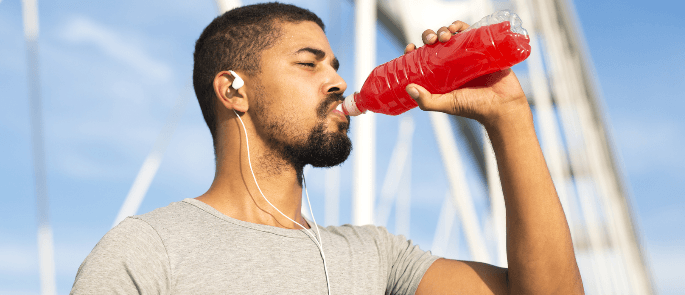
What Contains Caffeine?
Common foods and drinks that contain caffeine include:
- Coffee – instant coffee, filter coffee, coffee beans, etc.
- Tea – breakfast tea, everyday tea, Earl Grey tea, green tea and loose tea.
- Herbal tea – many have no caffeine at all but some contain high levels.
- Chocolate – chocolate bars, cocoa powder, hot chocolate, etc.
- Fizzy drinks – particularly cola-flavoured sodas.
- Energy drinks and sports drinks.
- Alcopops and pre-mixed cocktails.
- Energy-boosting snacks.
- Vitamins and supplements – tiredness and fatigue supplements, multivitamins, effervescent tablets, glucose tablets, energy drink powders, etc.
- Over-the-counter medicines – such as pain relievers and cold medicines
- ‘Caffeine-powered’ vapes.
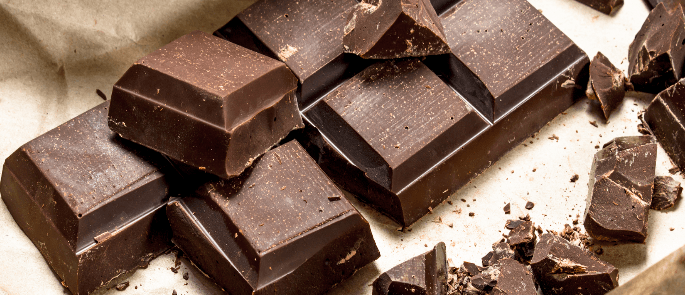
Is There a Difference Between the Caffeine in Tea and Coffee?
The caffeine in tea and coffee is the same, in that it all comes from a natural source of caffeine and has the same overall effects on the body. However, the caffeine in tea is usually slower to release in the body than that of coffee. The caffeine in tea reacts with a substance in the tea called L-theanine, which makes it release slower and avoids that feeling of a ‘crash’ often associated with coffee.
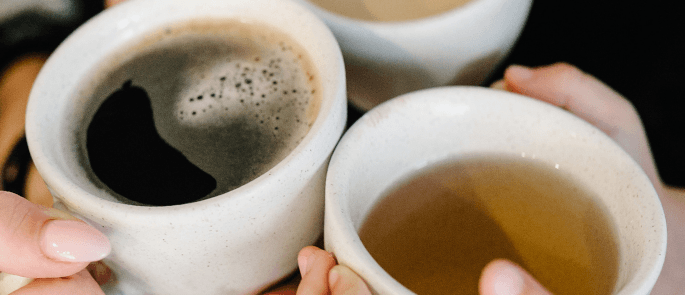
Further Resources
- Food Hygiene Courses
- Is There a Difference Between Food Hygiene and Food Safety?
- Food Safety Awareness Quiz
- Top 10 Food Safety Myths & Facts


